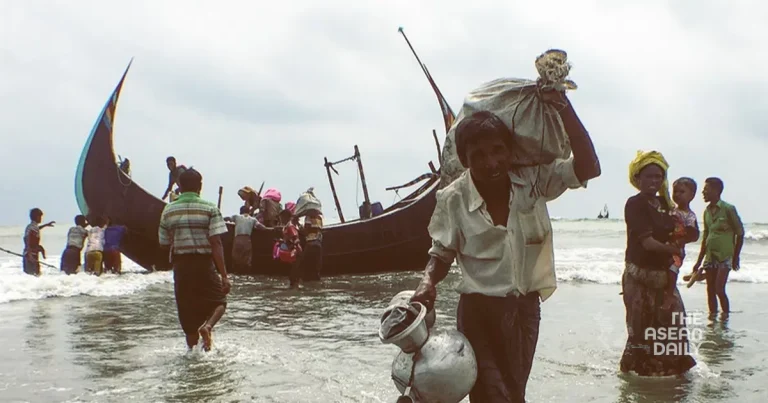10-9-2024 (YANGON) In a rare face-to-face meeting with Myanmar’s military leader, the head of the International Committee of the Red Cross (ICRC) has pushed for greater humanitarian access to conflict-affected regions of the country. The high-level talks come as Myanmar grapples with widespread turmoil following the military’s seizure of power in 2021.
ICRC President Mirjana Spoljaric met with Senior General Min Aung Hlaing in the capital, Naypyidaw, on Monday, marking a significant diplomatic effort to address the dire humanitarian situation in the Southeast Asian nation. The ICRC released a statement on Tuesday, revealing that Spoljaric had “advocated for greater access to conflict-affected areas” during her discussions with the junta chief.
The meeting is part of Spoljaric’s five-day visit to Myanmar, which included a tour of the western Rakhine state. There, she witnessed firsthand the “dire humanitarian needs” resulting from ongoing conflicts and displacement.
Rakhine state has been particularly hard-hit by clashes between the military and the Arakan Army (AA), an ethnic armed group fighting for greater autonomy for the region’s Rakhine population. The fighting has exacerbated an already precarious situation for the Rohingya minority, who faced a brutal military crackdown in 2017 that forced hundreds of thousands to flee to neighbouring Bangladesh. rights organisations have accused both the military and the AA of forcibly conscripting Rohingya civilians and carrying out extrajudicial killings. The 2017 crackdown is currently the subject of a genocide investigation at the International Court of Justice.
The humanitarian crisis shows no signs of abating, with Bangladesh authorities reporting that approximately 8,000 more Rohingya have recently crossed the border to escape the renewed fighting between the military and the AA.
While the state-run Global New Light of Myanmar reported that Spoljaric and Min Aung Hlaing “exchanged views on the undertakings of the ICRC to provide humanitarian aid in Myanmar,” the specifics of any agreements reached remain unclear.
The ICRC’s media office confirmed to AFP that discussions regarding the resumption of prison visits by ICRC staff, which were suspended due to the COVID-19 pandemic, are “still ongoing.” This issue is of particular concern given that, according to local monitoring groups, over 20,000 political prisoners are currently detained in Myanmar’s jails as a result of the junta’s crackdown on dissent.
When questioned about whether Spoljaric had requested to meet with detained democracy leader Aung San Suu Kyi, the ICRC stated that they are “still advocating to resume our detention visits, and supporting their families whenever possible.”
The ICRC’s report for the first half of 2023 described the situation in Myanmar as “deeply alarming,” citing ongoing clashes, destruction of infrastructure, and movement restrictions as major obstacles to humanitarian access. The organisation emphasised that the “response to the increasing humanitarian needs remains insufficient.”
The United Nations estimates that more than 2.7 million people have been forced to flee their homes since the 2021 coup, underscoring the scale of the humanitarian crisis facing Myanmar.




